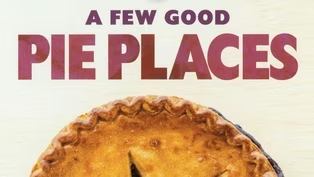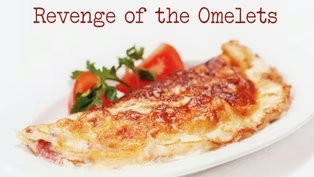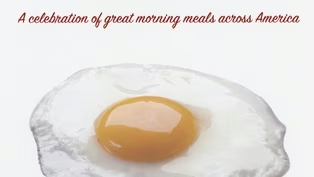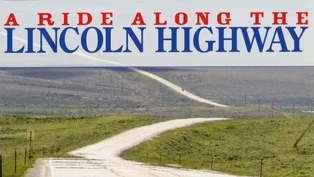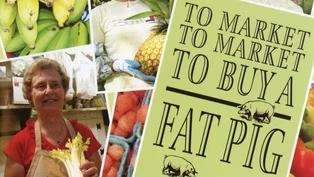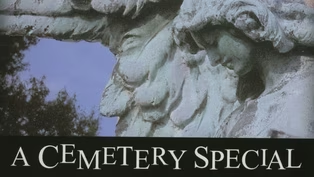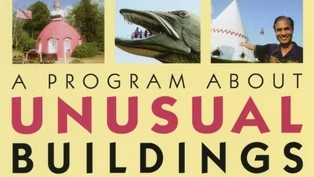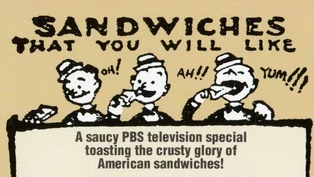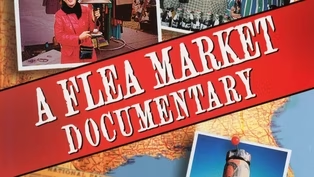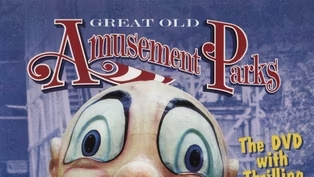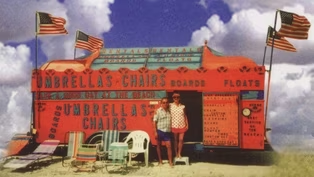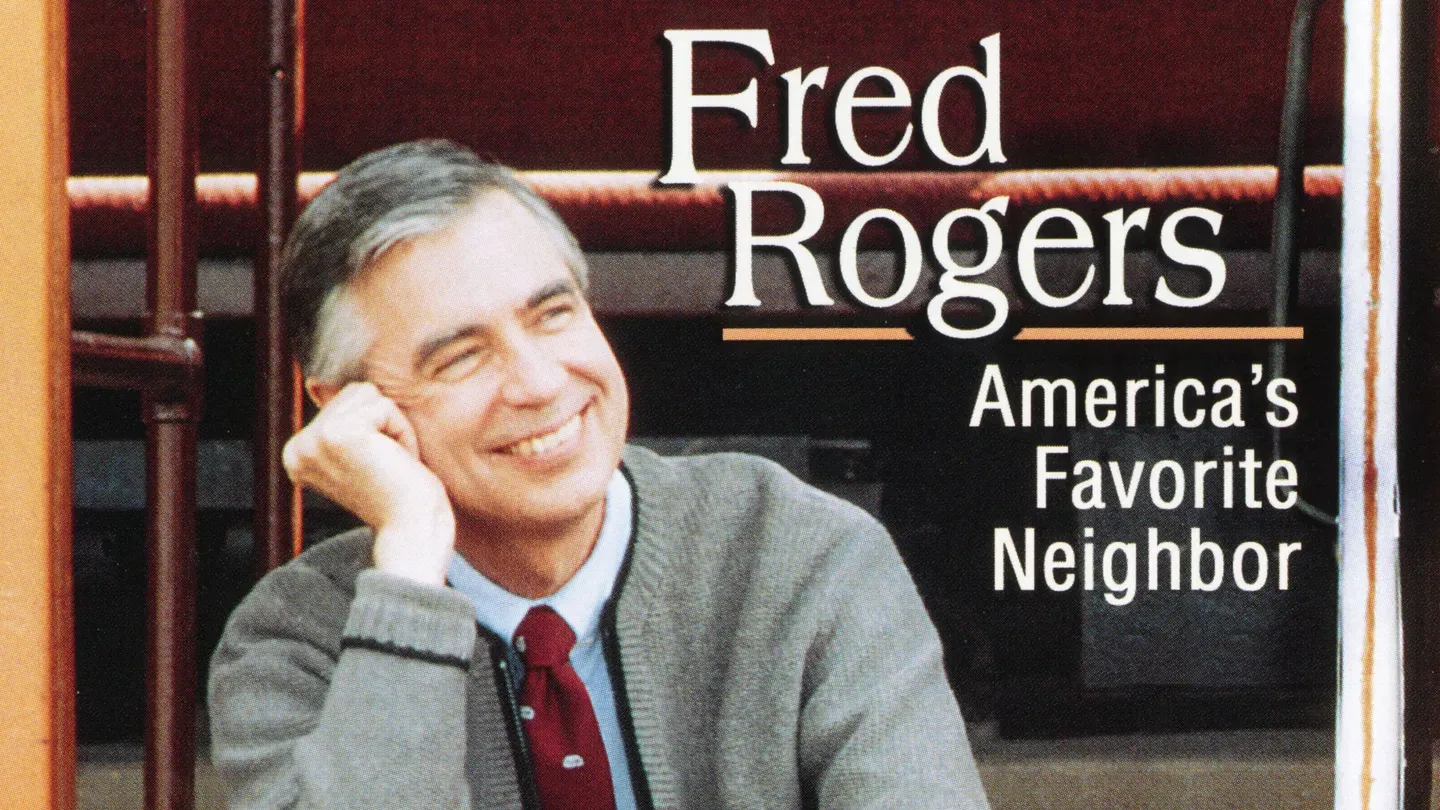

Our Neighbor Fred Rogers
12/28/1989 | 57m 49sVideo has Closed Captions
placeholder
placeholder
Problems playing video? | Closed Captioning Feedback
Problems playing video? | Closed Captioning Feedback
The Rick Sebak Collection is a local public television program presented by WQED

Our Neighbor Fred Rogers
12/28/1989 | 57m 49sVideo has Closed Captions
placeholder
Problems playing video? | Closed Captioning Feedback
How to Watch The Rick Sebak Collection
The Rick Sebak Collection is available to stream on pbs.org and the free PBS App, available on iPhone, Apple TV, Android TV, Android smartphones, Amazon Fire TV, Amazon Fire Tablet, Roku, Samsung Smart TV, and Vizio.
Providing Support for PBS.org
Learn Moreabout PBS online sponsorshipMore from This Collection
Video has Closed Captions
Discover some of the best bakeries in America. (56m 16s)
Video has Closed Captions
Travel across America and visit shops, restaurants and more to find a few good pies. (56m 15s)
A Breakfast Special 2: Revenge of the Omelets
Video has Closed Captions
This tasty sequel (with a playful title) from Rick Sebak celebrates some great breakfast spots. (56m 39s)
Video has Closed Captions
Rick Sebak visits interesting and unusual breakfast spots across the United States. (56m 39s)
Video has Closed Captions
Rick Sebak travels across America's first transcontinental highway, Lincoln Highway. (56m 30s)
To Market To Market to Buy a Fat Pig
Video has Closed Captions
To Market to Market to Buy a Fat Pig is a celebration of market places across the United States. (56m 46s)
Video has Closed Captions
A Rick Sebak program about cemeteries across the country. (56m 46s)
A Program About Unusual Buildings and Other Roadside Stuff
Video has Closed Captions
A program by Rick Sebak about the wacky architecture and structures within the USA. (56m 46s)
Video has Closed Captions
A travelogue featuring delicious sandwiches from across the USA. (56m 46s)
Video has Closed Captions
A Rick Sebak film about the people and history behind Flea Markets. (56m 30s)
Video has Closed Captions
In this documentary, you get to visit some of America's most charming amusement parks. (56m 46s)
Video has Closed Captions
The show profiles American beaches, the things they are known for, and other notable facts. (56m 46s)
Providing Support for PBS.org
Learn Moreabout PBS online sponsorship- [Announcer] "Our Neighbor, Fred Rogers" is brought to you on WQED by Eat'n Park, where something good is cooking for your family all day and all night.
(crickets chirping) (dog barking) (gentle piano music) - [Narrator] Fred Rogers said we could interview him at the small apartment he keeps in the Oakland section of Pittsburgh.
It's a private place where he writes scripts and composes songs.
This day, he was a bit embarrassed because the piano keys were dusty.
David Newell was there too.
He's Fred's public relations director and also plays Mr.
McFeely, a speedy delivery man on Fred's television program.
Most people know Fred Rogers as Mister Rogers, the host of the PBS Children's Show, "Mister Rogers' Neighborhood."
To many children, he's a trustworthy TV neighbor, unlike any other adult on television.
To many adults, he's a puzzle.
The guy who's so often parodied for his slow talking ways, his nerdy zip up cardigans, and his habit of changing his shoes on the air every day.
♪ Just like you ♪ ♪ I've always wanted to live in a neighborhood with you ♪ ♪ So let's make the most of this beautiful day ♪ ♪ Since we're together we might as well say ♪ ♪ Would you be mine?
♪ ♪ Could you be mine?
♪ ♪ Won't you be my neighbor?
♪ ♪ Won't you please ♪ ♪ Won't you please ♪ ♪ Please won't you be my neighbor.
♪ - [Narrator] He's also a puppeteer who's brought to light an imaginative set of characters that he shared with his audience for decades.
He's also a playful composer and musician.
♪ Bless you for being an angel ♪ ♪ Just when it seemed that heaven was not for me ♪ - You tell me when you're ready to start, 'cause I'm just playing.
- [Narrator] This day we hope to find out a bit about Mister Rogers' childhood, his school days, and his early work with Josie Carey on the very popular "Children's Corner."
We wanted to know something about his first days on camera in Toronto.
♪ My name is Mister Rogers.
♪ - [Narrator] We hope to find out a bit about what it's like behind the scenes, how the show is put together.
But right then, Fred and David Newell seemed to be getting a kick out of those old Tin Pan Alley songs.
♪ If your heart goes bumpity bump ♪ ♪ It's love love love ♪ ♪ If your throat comes up with a lump ♪ ♪ It's love love ♪ Oh, isn't that wonderful?
♪ If your knees go knockity knock ♪ - [Narrator] Then it was time to get started.
- That's the way you tell whether you're in love.
(playful piano music) You know, I must be an emotional archeologist because I keep looking for the roots of things, particularly the roots of behavior and why I feel certain ways about certain things.
- [Narrator] Mister Rogers roots are in Western Pennsylvania, in the small industrial town of Latrobe.
Some say Laytrobe.
It's also the home of Rolling Rock Beer.
- It's a good small town.
Well, of course, it's the garden spot of the world, as Lady Elaine Fairchilde would say.
- [Narrator] Fred was born on March 20th, 1928, the first and only son of James and Nancy Rogers.
He was an only child until he was 11 when his parents adopted a baby daughter.
The Rogers lived a prosperous life in this big red brick house near the top of Weldon Street.
It's still a very handsome, all-American neighborhood, the place where Mister Rogers grew up.
He often talks about his childhood on his television show, sharing his memories with children.
- When I come out here, sometimes I think about a time when I was very little.
You know, I wasn't allowed to go out of the house by myself when I was very little.
My parents were afraid that somebody might take me away and they wouldn't see me again.
So they always said, "Freddy, when you want to go outside, always tell somebody and somebody can go with you."
- [Narrator] On all programs of "Mister Rogers' Neighborhood," child psychologist, Dr.
Margaret McFarland, is Fred's chief advisor and consultant.
She feels his ties with his past are crucial.
- But one thing is that Fred has not the way many people have.
He's not closed off his own childhood.
He can recall and afford to recall his childhood, and there is an empathy that goes between Fred and the kids that they respond to.
- Well, it was like this.
I went to a camp one time because there was a ventriloquist there, and I was interested in that kind of, I mean, I was interested in puppets, you know, all my young life.
A little girl named him.
His original name was Elmer.
Yeah, but she didn't like.
No.
And I said, "Well, what would you like him to be called?"
And she said, "Hischer Booptrunk."
Silly, doesn't it?
Well, I know some people who are really good ventriloquist.
Well, you're not.
No, I'm not, Hischer.
(chuckles) - [Narrator] The young Fred was a chubby little boy for a while.
- Until I was about 12, I was fat, but I don't remember too much about the fatness.
- [Narrator] Fred does remember that from a very early age, he loved music.
- Music was my first language.
I was, at times, scared to use words.
I didn't wanna be a bad boy.
I didn't wanna show people that I was angry, or rather tell them, but I could show it through the way I would play on the piano.
I could literally laugh or cry or be very angry through the ends of my fingers.
And for an only child, I think that was very safe and comfortable.
So it was, this was my friend.
- [Narrator] His maternal grandfather played an important part in Fred's early life.
- My grandfather played the violin.
And I remember he would play this song.
♪ Play gypsy ♪ ♪ Dance gypsy ♪ ♪ Play while you may ♪ ♪ Play gypsy 'tis a lovely day ♪ - I remember learning that to please him.
And we called him Ding Dong, and that was Mr.
McFeeley.
I think that if you don't have anybody to please, if you don't have anybody that you love enough, you know, be it yourself or somebody else, if you don't have anybody to please, you won't learn anything.
You know, we've named Mr.
McFeely for my grandfather, McFeely, and I was named for him.
His name was Fred Brooks McFeely, and my name is Fred McFeely Rogers.
The middle part of which is speedy delivery.
(laughs) - [Narrator] At Latrobe High School, Fred started as a timid freshman, but he made some good friends and began writing a local newspaper column.
- I wrote about everything that had to do with life in Latrobe High School because that was my biggest extracurricular activity.
I was also editor of the yearbook my senior year and president of the student council in my senior year at high school.
Very different from my freshman year in high school.
I was a very shy kid.
I was the Daniel Striped Tiger of that school, I'm sure.
- [Narrator] After graduation, Fred went for a year to Dartmouth College in New Hampshire, and then transferred to Rollins College in Florida.
- Well, they were very different at Dartmouth and Rollins.
In the days I went to Dartmouth, it was an all men's school, and I had a wretched time.
So on my Easter vacation, I went down to Rollins and was met by a whole gang of Rollins kids at the airport.
They had alerted them that I was coming, and they gave me a tour of the campus.
Well, it was just all the difference in the world down there.
And so next year I went to Rollins.
- [Narrator] Fred eventually graduated from Rollins with a degree in music composition.
He has since received over 20 honorary degrees from colleges and universities across America.
He spoke at the Carnegie Mellon University commencement in 1976.
- I remember well my college commencement.
I wondered where I would go and what I would do.
It's an exciting time, but it is a frightening time.
I was home my senior year from Rollins and saw, at mother and dad's place, some television, which I thought was perfectly horrible.
I just announced to my family, "I don't think I'll be going to the seminary.
I think I'll go into television."
And they said, "How can you say that?
You've never even seen television."
And I said, "Well, I've seen enough to know that I think I'd like to try to put my hand in it."
So, I went to NBC and they hired me, well, first as a gopher.
Well, after a while, I got to be a floor manager after I had carried my share of coffees and Cokes.
And one of the first productions that I was involved with as a floor manager was "Amahl and the Night Visitors."
- [Narrator] At NBC Fred also worked on shows like the hit parade, "The Kate Smith Hour" and "The Gabby Hayes Show."
- Oh, well, I floor managed his program every once in a while.
Gabby Hayes would introduce Western films, and then we'd go into the film and we'd have lots of time to talk in between.
- Well, how are you buckaroos?
It's your old pal, Gabby Hayes, coming at you with another one of them rip-roaring Western yarns.
Your darn tootin'.
Yes, sir (indistinct).
- And so one day I said, "Mr.
Hayes, what do you think of when you look at the camera and you know there are so many people watching you?"
And he said, "Freddy, I just think of one little buckaroo."
And I thought that was superb advice for anybody who would ever be thinking of television.
He evidently thought of one child.
And I don't think of any one particular child, but I think of, I think of the children that I know and many of the aspects of life that they're dealing with.
But I don't think of a whole lot of people when I look at the television camera.
It's a very, very personal medium.
I was a bachelor for, oh, about a year and a half.
Well, that doesn't mean I got married when I was a year and a half old.
But I mean, you know, when I was living alone in New York for about a year and a half, and, oh, dear, I practically got frostbite from cooking every night.
I would just open up the stuff.
There, that's egg salad.
Oh, that looks awesome.
Well... But it really is good, just the eggs with the mayonnaise.
Many children like egg salads, you know that?
In our house, it's about second to, you know what?
Peanut butter?
Peanut butter, sure.
(coworker laughs) - [Narrator] Fred's bachelor days ended in 1952 when he married Joanne Byrd, a girl he'd met that first day he visited Rollins College.
In 1953, the young couple moved from New York City to Pittsburgh, where some community leaders were trying to start a new educational television station.
When Fred arrived at the Old Man's on the corner of Fifth and Bellefield in Oakland, a young woman named Josie Carey was working there.
- I was at WQED already.
I had been discovered by Dorothy Daniel.
She had seen me at the "Playhouse" doing a song, and I was Teeter Totter Tessie.
And I stole the hearts of the boys and I stole the seats from the seesaws.
And she sent me a note saying she was interested in talking to me about doing a children's program.
So I went to see her, and she said, "Until we get on the air."
It was October 12th that I got hired at WQED.
October 12th, 1953.
I'll never forget it.
Of course, it was Columbus Day.
How could you forget that?
Anyhow, I got to WQED and she said, "We are not on the air yet, so you'll have to do something else until we get on the air."
- We moved back in November of '53.
I think that was just maybe a month after Josie had come.
And she come in October, then we came in November.
- And this fella had just come to the station from New York, and everybody else seemed very excited about him.
And he brought his own office furniture and I thought that was unusual.
I mean, not too many people I knew went to work and then carted in their furniture.
- Here we were, just a half dozen people trying to get this educational television station on the air.
- We did everything, everything that had to be done.
We answered mail and we ran around and Mrs.
Daniel was always doing reports.
And we'd walk around, we'd collate.
And I remember one time Fred had a piece of paper, and all he had to remember that it was page eight of the body.
And he kept walking, "This is page eight of the body."
"This is page eight of the body."
- Oh, boy, the things that you do when you have to.
- Between us, we had put together like 86 programs before the station got on the air.
Because Mrs.
Daniels was so wonderful, you go to her with an idea and she'd say, "That's the best thing I ever heard.
Go to your office and type it up and put it on my desk."
She never lets you let an idea get away.
She never used any of the ideas, but at least she never said no to anything.
And so you had a chance to do this creative effort.
You got it out of your own system.
- But during that early time, there was lots of preparation and lots of stuffing and folding papers to send out to people to ask for donations.
And I thought, "How different this is?"
not only from New York, but from NBC.
- So Fred and I, anyhow, started to talk about the children's program, and he had a stuffed horse and a ventriloquist dummy.
- We had a budget for that of $150 a week.
And Josie made 75 and I made 75.
And so anything that we bought, we had to buy out of our own pockets.
- So then, anyhow, somebody drew a set for us, and we were hard pressed to figure out what was going to be on it.
It was just a screen with, it was gray with black and white characters on it.
And we had a Wish We Had More Mailbox.
That was the name of the mailbox.
And we had a clock put on the set with a little hole, and we were going to get a bird to come out of the clock, and the bird was going to say, "It's 5:02, and Columbus discovered America in 1492," and then he was gonna go back in.
Every day, he was gonna come out, give a fact, go back in.
- And then on Sunday night, Mrs.
Daniel had a party for everybody who was going to be on the air the next day and the whole staff.
- And at each place, there was a little present.
Now, I got a mirror.
- She gave me a puppet.
- And I don't know whether Fred got the tiger or I got the tiger, but I took the tiger home with me, and we named him Daniel after Mrs.
Daniel.
- So we went on the air five o'clock and a couple, we had this song that Josie and I had written called "Why High?"
♪ Why hi don't I know you?
♪ ♪ Why hi don't I know you?
♪ ♪ Why hi I'm sure I do ♪ ♪ Why hi you know me too ♪ ♪ Why hi how do you do?
♪ ♪ Why hi I'm Josie ♪ ♪ Why hi how do you do?
♪ - And then I was at the organ playing.
- And because we didn't have time to get a bird, Fred shoved Daniel out the hole and said.
- Ah, "Hi, Josie.
It's 5:02, and Columbus discovered America in 1492."
And then just went right back in.
And that was the first thing that he said, and I had no idea that he would say anymore.
- And that's generally how the whole program came to be.
We had to do with what we had.
- Can't we do something?
- What you mean do?
- Really, really do something.
Like, make... Build a house or something.
- Build a house?
- No, not that exactly, I guess.
But... Don't you ever feel like you've just got to do something nice?
Write a poem, we could.
Or a song, or dance little bit.
- Well, that's more like it, but build a house?
My goodness.
- Well, that was the first thing I thought of.
I really didn't think we could do that.
- No.
- Not in an hour or a half hour.
- No.
And have any continuity to it.
- It wouldn't.
- No.
- Well, we could carry it out over a long period of time.
There's never been a children's program that showed how to build a house.
- And there never will be.
- Now, Daniel, the clock was this big.
That was another neat thing about our program.
The outside of the clock was this big, but Daniel had 17 rooms in his clock.
And he would talk about the 17 rooms, and he had a party every single day.
He would make up reasons for parties and he would serve hamburger at every party.
Now, you were telling us who came to your party.
- Well, there's Dorothy, Pix, Serena, John, Dawn, Nancy, Jimmy, Esther, Phyllis, Augusta, Angie, Henry, Carl, Shirley, Morty, and Barbara.
- Oh, wow, that's a nice crowd.
I hope you're preparing something simple for refreshments.
- Oh, hamburgers.
- Hamburgers?
- Yes.
- So will they be able to eat them in the dark?
- Well, I don't know.
I thought maybe I could go out and get some of that phosphorescent stuff, you know, and paint around them so they could- - Oh, you don't wanna do that.
Get the lights fixed.
That's the best thing.
- At the old QED building, the organ was at one end of the studio, and the "Children's Corner" set was at the other.
And so when I finished playing, "Why hi, don't I know you?"
and I would have to get over there to poke the puppets out from behind.
I had to run the whole way across the studio.
- It was almost like in one studio, and the set was in another.
So I had to time my remarks and talk as long as I thought it was gonna take him to run.
- While Josie was talking, I certainly didn't wanna clump in shoes like this.
- Now, this is where his sneakers came into vogue, whatever.
He first had regular shoes like anybody else, but they made a noise running across the studio.
Plus, he had change in his pockets.
And he used to pull his pants up and hold onto his change with both hands and run the length of the studio.
- They have pictures of me holding my pockets.
Because evidently, I had change in my pockets and I didn't want them to rattle either.
- Well, he stopped wearing regular shoes and started to wear sneakers, and then I think he started taking the change out of his pockets.
- And so I wore those sneakers, and those sneakers I had bought in Nantucket.
And I've bought those Top-Sider sneakers ever since.
- I would like everybody to meet my good friends, the president of the Tame Tiger's Organization.
And if you would like to join the Tame Tiger's Organization- - (indistinct), you'd forgotten about that.
- It's really very simple.
We'd love to have you as a member of our organization.
That's our club.
And Daniel F. Tiger is the... (gasps) I shouldn't have said his name now, he'll bow.
But this is the president of the Tame Tiger's Organization.
And we have pins that we wear and we have cards with our numbers on it, and we have tigers to put on the wall, and we earn our stripes from the... It's really a lot of fun.
We had a lot of the participation from the fans.
They belonged to our club.
The Tame Tiger's Organization was our club.
And we had cards that we sent out, and we also gave them a button.
And they earned stripes, just like Boy Scouts and Girl Scouts had their merit badges.
- One day Josie said, "When is your birthday, Daniel?"
And he said, "Next Friday."
And she said, "Well, why don't we have a party?"
He said, "Okay, if you want to."
And so she just turned the camera and said, "Anybody who wants to come to Daniel's birthday party, just come."
- And so we made arrangements to have a little cake and some ice cream and some milk or something to give to anybody who showed up.
But we didn't want just anybody showing up, so we said they had to have earned their fourth stripe in this organization, to our organization.
And the way they earned the fourth stripe was to learn a French song.
(Josie speaking in French) "I Am a Tame Tiger" in French.
- Let me see.
How did they... (Fred singing in French) - The day of the party came and we expected, you know, a trickle of people in and out.
Well, about an hour before we went on the air, somebody said, "Look out the window."
Well, we looked out the window and there were children lining the whole building.
They were all over the place.
They filled the studio, they filled the backyard, they filled the gallery, they filled the lobby.
- We had no idea that there were that many people watching.
- When it came time to sing (speaking in French), every child knew that song.
They didn't get in there under false pretenses.
They deserved to be there, they earned their place.
And they sang (singing in French).
And I still get goosebumps when I think of it.
It had to probably be the most exciting moment.
Well, you know, I've had a baby.
That was exciting too.
In television.
You just don't get that kind of a thrill.
That's something that stays with you the rest of your life.
- Does it have a Thermos in it?
- No, uh-uh.
Has everything but a Thermos.
- You're not allowed to eat in the studio.
(Josie laughs) - There's nothing in here to eat.
I don't think there is, anyhow.
There wasn't anything in here to eat before.
- Mister Rogers always brings you crackers from lunch.
- Yes, I know.
He puts them in his pocket, and then he sits (indistinct) crumbs.
(Josie laughs) Let's start all over.
And many is the time I would finish the segment.
Now, Fred was behind the set and he'd be at the organ.
And I'd go around and I'd tell Fred what had just happened.
Because in my own mind, I had divorced the fact that Fred was the one I was talking to, you know, because I was talking to every part of Fred.
He had different personalities for each character.
Daniel was sweet and gentle and compassionate.
X was his flaky side and not quite all that smart, always needing to learn.
King Friday was compass and needed power and wanted control.
And so each of the characters had little parts of Fred in them.
And I sometimes totally forgot Fred Rogers existed and I was talking to my friends.
These were real people to me.
- I would be surprised by some of the things that she would share with them, but that made it all the better because it was real, the dialogue between Josie and the puppets.
And that was really fun.
And, of course, one of the most fun things for me was writing songs with Josie, because she is such a fabulous lyricist.
And we wrote a lot of songs together.
♪ I'm busy being busy ♪ ♪ Yet the calendar's my task ♪ ♪ I'm busy giving dates away ♪ ♪ To all who come and ask for a week for this ♪ ♪ A week for that ♪ ♪ I'm busy being busy ♪ ♪ And the busier I get ♪ ♪ The more some people need a week ♪ ♪ For barber shop (indistinct) ♪ ♪ And a week or two ♪ ♪ Now fish (indistinct) cats ♪ - An engineer at KDKA once said, "We might as well put down our, close down our tower at five o'clock, because everybody watches QED."
- [Narrator] In August of 1955, the NBC Network asked Josie and Fred to come to New York and do "Children's Corner" nationally for four weeks as a replacement for "The Paul Winchell Show."
After those four shows, NBC received a record 53,000 letters from viewers.
So from December, 1955 till the summer of '56, "Children's Corner" became a regular part of Saturday mornings on American TV.
- Now put your head way back, and whistle.
(Josie whistling) That's good.
- What am I supposed to be?
- Teapot.
- [Narrator] On "Children's Corner," although he played the organ and was the voice of all the puppets, Fred was seldom seen on camera.
- Well, Mister Rogers was an actual character on "Children's Corner," although he was never seen.
But Henrietta Pussycat belonged to him, and she talked about him all the time.
She could only say three words.
She meowed everything else.
She said beautiful, telephone, and Mister Rogers.
Meow, meow, meow, meow, beautiful.
Meow, meow, telephone.
Meow, meow, meow, meow, beautiful, meow, Mister Rogers, meow.
And you could interpret that any way you wanted.
- Meow, meow, meow, meow, Mister Rogers, meow.
- [Josie] Oh, I see.
Thought maybe you'd be seeing him, so you decide to get all dressed stuff.
- Yeah.
- And at one point, we decided we teach the children to dance.
And Fred said, "Well," he said, "I can dance."
And I said, "Well, I can't," and so he taught me to dance.
He was Prince Charming.
- [Narrator] This princely dancing instructor character eventually led to a small spinoff show titled "The Prince."
No copies of it exists today.
The Prince had an elf friend named Ticker who once appeared on a Christmas special titled, "Josie's Holiday."
- Licker Ticker with a snicker.
- With a snicker.
- Get you there and back much quicker.
- [Narrator] Ticker was played by a young volunteer at the station named Margot Woodwell.
Today, she is vice president and station manager of WQED.
- But as far as the "Prince" itself goes, it's very funny that I don't remember more of it than I do.
I think Monday through Thursday, for 15 minutes in quarter of 12, we would perform the "Prince," and it was very spontaneous.
And Fred had a Prince's outfit on, and I guess he had a mask.
It's funny 'cause I don't remember the mask.
- [Narrator] Few people remember much about the Prince.
What's remembered from Fred's early days is the energy and exuberance of the shows, the fascinating improvised interchanges between Josie and Fred, and the puppets.
In 1955, the show won the prestigious Sylvania Award, a precursor to the Emmy.
And Josie and Fred received numerous other awards before their careers went separate ways in 1961.
♪ So long goodbye I do ♪ ♪ So nice to see you ♪ ♪ So long goodbye to you ♪ Bye!
- [Narrator] During most of the "Children's Corner" era, Fred Rogers had been attending seminary school on his lunch hours.
In 1963, he was ordained a Presbyterian minister, but with a very unusual charge.
He was to work with children and families through the mass media.
By then, he and Joanne had two sons of their own when the Canadian Broadcasting Company, the CBC, entered the picture.
- I thought I was going to be asked to do a program for the Presbyterian Church when I graduated from seminary.
And the day before graduation, I got word that they did not have the money at the central office in New York that they thought they were to get.
The day after graduation, I had a call from Fred Rainsbury who was a friend of ours, who was head of children's programming for the CBC.
He said, "Fred, I'd like you to come up here and do a 15-minute program for children.
Would you do it?"
Well, since I'd had the call two days before that I didn't have a job, the one that I thought I'd have, I said, yes.
- [Narrator] In Canada, Fred produced a show that began like this.
♪ Would you like to meet the tiger ♪ ♪ Who lives there in that clock ♪ ♪ Or see that Eiffel Tower and hear a French one talk?
♪ ♪ Would you like to use a telephone?
♪ ♪ It's a tin can on a string ♪ ♪ It lets you reach the castle ♪ ♪ Where a most majestic king ♪ ♪ His Majesty King Friday ♪ ♪ Is in charge of everything ♪ - [Narrator] The set was much more elaborate, but the puppets were mostly the ones from "Children's Corner."
There'd been a trolley on that show too, but this new one was snazzier with a sign neighborhood, spelled with an O-U-R as they do in Canada and England.
♪ And visit me ♪ ♪ There's lots for us to see in here ♪ ♪ And think and do and feel and be ♪ ♪ My name is Mister Rogers ♪ ♪ I'm glad that you are near ♪ ♪ You've made this day a special day ♪ ♪ By just your being here ♪ - How are you today?
You know what I found in my Christmas stalking?
I found a kiss from you.
- [Narrator] Fred was now on camera as himself, setting many of the patterns that he still follows today.
He began the show with a song, followed by this friendly talk.
In just a moment, he's going to pick up a toy boat and use it to transport his viewers through a TV screen back into the elaborate world of the puppets, which he now calls the Neighborhood of Make-Believe.
- Did you ever go on a boat?
Did it go like this, and down, or does it go very smoothly across the water?
Ship, would you like to sail into our Neighborhood of Make-Believe?
I bet it could take us in, don't you think?
Let's see.
And let's just see who's in there.
Well, there's Pat in his own ship.
♪ It's a beautiful day in this neighborhood ♪ ♪ A beautiful day for a neighbor ♪ ♪ Would you be mine?
♪ ♪ Could you be mine?
♪ ♪ It's a neighborly day in this beauty wood ♪ ♪ A neighborly day for a beauty ♪ ♪ Would you be mine?
♪ ♪ Could you be mine?
♪ ♪ I've always wanted to have a neighbor just like you ♪ ♪ I've always wanted to live in a neighborhood with you ♪ ♪ So let's make the most of this beautiful day ♪ - [Narrator] This unusual interpretation of what would become Fred's theme song is sung here by Canadian actor Allen Blye, or Captain Blye as he was sometimes called on the show.
The "Mister Rogers" program was a hit in Canada, but Fred and his family didn't stay there long.
- And after a year, I decided that I really wanted to raise those kids in the United States.
And so I got a job back here in Pittsburgh with a church, thinking that that's probably what I would be going into for the long haul.
- [Narrator] Fred wasn't back in Pittsburgh long before George Hill, working with the Horne's Department Store, asked him to do some Christmas specials at WTAE-TV.
The set was simple, again, a lot like "Children's Corner," but Fred was on camera for the first time in Pittsburgh.
The message was reassuring and familiar.
♪ So if you may just come and stay ♪ ♪ And we'll be neighbors here ♪ As you make each day a what?
Right, a special day.
♪ By just your being here ♪ - [Narrator] The land of the puppets was, again, the Neighborhood of Make-Believe.
Guitarist, Joe Negri, was a new neighbor there who would stay around for decades.
- You there?
- Did I hear a strain?
- Hi, how are you?
- I'm (indistinct).
- [Narrator] Fred ended these programs with a song he'd written with Josie.
♪ Happy tomorrow tomorrow ♪ ♪ It'll soon will be tomorrow ♪ ♪ And be our day ♪ ♪ We will say a happy tomorrow to you ♪ - [Narrator] After a short time at WTAE, during which he also did a program called "Sunday with Misterogers," Fred ended up back at WQED, where he put together some half hour shows featuring films of the Neighborhood of Make-Believe that he'd done in Canada.
As Fred did more work on camera, he continued his studies.
As a seminary student, he'd worked for a time with children at the Arsenal Family and Children's Center, still a preschool today in the Lawrenceville section of Pittsburgh.
It was there that he met and began his long association with Dr.
Margaret McFarland.
- [Fred] She asked if I would bring the puppet sometime and work with the kids in groups.
And so I did.
And that's how it all began.
- I feel glad to have supported him in coming out from behind the puppets and being a real person to the children 'cause his person, as children relate to it, is one of the most important things in the whole series of programs.
- And ever since we've met on the average of three times a month, to go over all the scripts, all the lyrics of the songs, all the speeches, anything that I would be doing in public, Margaret would go over them and give me such insightful comments that my work has been enormously enriched by her genius.
- [Narrator] In 1967, Fred started to produce a new series of programs.
A set very much like the one in Toronto was built in Pittsburgh.
And Fred called on Johnny Costa, a nationally renowned jazz pianist from Pittsburgh who had worked with Fred and Josie on some shows at KDKA in the 1950s.
Johnny Costa became musical director of the new series.
- You know, when I sat down to do the very first program, when Fred wrote the song, (playful piano music) and I had to have an intro, you know.
And I had remembered that, I don't know, somehow being in Oakland and right near where I went to college at Carnegie, and I had worked on a Beethoven, a sonata on that trio went something like this.
(bright piano music) And so I thought, "Hey, that might make a nice intro for the program."
So I did that.
Instead of three part-harmony, and I did it in fours.
And did.
(bright piano music) You know, that'd be a nice intro for the song.
(bright piano music) And so on.
And then he would sing.
So that stage, you know.
Years later, I went back and said, "I better write that down.
In case something happens to me, somebody else will be able to play that."
- He is one of the most gifted musicians that I have ever met.
He is probably one of the finest jazz pianists in the world.
And when people talk about him in the same breath as those who are considered the greats, nobody should raise their eyebrows.
(playful piano music) I don't think I've ever had such a musical friend.
Johnny takes the melodies and words that I write for the songs and he gives the chords with such grace that there are times when, you know, I just flutter.
- One time I went to Fred whenever we had just done a thing, just tape a segment, and I'd go to him like, can you see what I'm... I'd go to him and say.
And this ordinarily would mean beautiful, you know, great.
So I'd go, stinks.
(laughs) Well, you gotta keep the troops happy, you know.
- [Narrator] Broadcast nationally over NET, the National Educational Television Network, the new series was titled "Misterogers' Neighborhood."
It debuted on February 19th, 1968.
The show features really two neighborhoods.
The miniature neighborhood we're seeing now is a more realistic counterpart to the sometimes zany neighborhood of Make-believe.
Eventually, the shows would be taped in color and Mister Rogers would become two words and the inside of the studio house would change a bit, but not all that much is different from this first national program.
♪ It's a beautiful day in this neighborhood ♪ ♪ It's a beautiful day for a neighbor ♪ ♪ Would you be mine?
♪ ♪ Could you be mine?
♪ Well, I suppose it's an invitation.
Won't you be my neighbor?
It's an invitation for somebody to be close to you.
'Cause that's what neighbors are, they happen to be in the same neighborhood and close.
And I think it's a parable for the desire for closeness.
And if you can be close, and if you can care about me, then maybe there are things that you'll want to learn that I have to give you.
And the dinosaurs are bigger than houses.
I wonder what they ate.
They must have eaten a lot, they were so big.
Of course, there were many different kinds of dinosaurs.
And they aren't living anymore on the world, no.
No more on the earth.
It's fine to wonder about them.
There are lots of things to wonder about in this world.
♪ Did you know?
♪ ♪ Did you know?
♪ ♪ Did you know that it's all right to wonder?
♪ ♪ Did you know that it's all right to wonder?
♪ ♪ There are all kinds of wonderful things ♪ ♪ Did you know?
♪ ♪ Did you know?
♪ ♪ Did you know that it's all right to marvel?
♪ ♪ Did you know that it's all right to marvel?
♪ ♪ There are all kinds of marvelous things ♪ ♪ You can ask a lot of questions ♪ ♪ About the world and your place in it ♪ ♪ You can ask about people's feelings ♪ ♪ You can learn the sky's the limit ♪ ♪ Did you know?
♪ ♪ Did you know?
♪ ♪ Did you know when you wonder you're learning?
♪ ♪ Did you know when you marvel you're learning ♪ ♪ About all kinds of wonderful ♪ ♪ All kinds of marvelous ♪ ♪ Marvelously wonderful things ♪ Just wanna show you how we make a part of our television program.
You know, the houses and the streets and the cars that you see at the beginning of our program?
Well, that's what this model is.
You see, I could take my brontosaurus and move it right along these streets, and it would look very, very big.
It's such a good feeling to be truthful with people.
♪ It's such a good feeling to know you are alive ♪ ♪ It's such a happy feeling ♪ ♪ You're growing inside ♪ ♪ And when you wake up ready to say ♪ ♪ I think I'll make a snappy new day ♪ ♪ It's such a good feeling ♪ ♪ A very good feeling ♪ ♪ The feeling you know that we're friends ♪ You always make each day a special day for me.
You know how, don't you?
By just you're being yourself.
There's only one person in the whole world like you.
And people can like you exactly as you are.
I'll be back tomorrow.
Bye-bye.
I'd like kids to know that they have a lot of choices.
In fact, on the Neighborhood, I think that we offer a smorgasbord of ways of saying how you feel and who you are.
And I just like, you know, puppetry and music might be my ways, but it might not be for some kid.
Dancing or photography or welding, who knows what it might be for some kid?
But I'd like to show them a whole lot of ways of expressing who they are and how they feel.
- [Narrator] The actual videotaping of "Mister Rogers' Neighborhood" takes place primarily in Studio A at WQED.
Fred usually produces 15 new programs a year.
- Okay, now, on that one, then Mr.
Rogers comes through the door and he sings.
Now what we try to do since we have so many programs that we've done?
We try to vary it a little bit so it doesn't always sound the same.
So yesterday I decided to have one hand go that way and the other hand go this way.
Do you want to see what that one sounds like?
(playful piano music) This has always got to be the same.
This is the signature.
Now, here's where it's gonna start to change.
(playful piano music) See, something, you have to do something.
I wanna play a little jazz, just the course of it, okay?
(playful piano music) - [Narrator] Many of these people who work with Fred in the studio have been helping put the shows together for a long time.
Nick Tallo on the left here, is the floor manager, and Jimmy Seech on the right, the teleprompter operator.
They've been keeping things lively in the studio for Fred since the late '60s.
- We kid him a lot, and he's real good about it.
We still, I mean, we've been doing it for so many years.
Every once in a while, we still stuff his sneakers with like paper towels, you know, and he'll go to put his shoes on and he won't be able to get his feet in.
You know, things like that.
And, you know, every three, four years, we'd do it again.
- Yeah.
♪ It's such a good feeling to know you're alive ♪ - [Narrator] If you aren't familiar with the show, you need to know that Fred always ends his show with this song, and then changes his shoes before heading back out the door.
♪ I think I'll make a snappy new day ♪ ♪ It's such a good ♪ (crowd laughing) - Oh, is that nice?
Who's are these?
They're Jimmy's.
- And he can be crazy at times.
I mean, I think he enjoys a good joke or he enjoys whenever we play a trick on him, or he tries to get even with us or something like that.
I mean, in a nice way.
- And we have fun with McFeely a lot.
He's... Mr.
McFeely has been falling off of bicycles and crashing into things for years.
- Oh, well, Nicky and Jimmy, you know, what would I do in the studio without them?
And Frank and Bobby and Art, and the people that we've worked with all these years.
They're just wonderful human beings.
- [Narrator] Fred mentioned Bobby, that's Bob Vaughn.
Since the first days of the Neighborhood, whenever millions of people have seen Fred come in the door and move around his house, it's been through the lens of Bob Vaughn's camera.
- And, you know, it's pretty hard to follow somebody when they stand up and go run into the fish tank, and you're here, you know, with that kind of shot.
But he tells me.
I don't know how he does.
It's sort of like body language.
- [Narrator] Fred also mentioned Art, Art Vogel.
He's worked for WQED since the days of "Children's Corner" and says Mister Rogers is the same off camera as he is on.
- Fred Rogers is Fred Rogers.
And I think sometimes people really don't believe that or they doubt that, but he really is.
I mean, he's genuine on camera as he is off.
And I've had three children that grew up with him.
Not only we had to make the productions here, rehearse 'em several times, but then I had to go home and watch 'em three times.
- [Narrator] (indistinct) has worked with Fred since the earliest days of the Neighborhood.
She now shares the byline with Fred on the nationally syndicated newspaper column, Insight Into Childhood.
She also does public speaking on Fred's behalf.
- Now, I remember one of my favorite stories about Fred is a time when I came back from a conference.
I had just shown a segment that was so touching to the whole audience there.
And I had shown them the piece from the week about making mistakes where Betty and Daniel have this poignant interchange.
And some of it is in song where Daniel says, "Sometimes I wonder if I'm a mistake."
♪ Often I wonder if I am a mistake ♪ ♪ I'm not supposed to be scared, am I?
♪ ♪ Sometimes I cry and sometimes I shake ♪ ♪ Wondering isn't it true that the strong never break?
♪ - It's such a poignant piece when I took it to this conference, and the people spontaneously applauded after that segment.
So I came back here and I told Fred about that response, and he said to me, "Why didn't you call Betty and tell her what people thought of it, how much they felt from it?"
And then he turned to me with the twinkle in his eye and he said, "I'll tell Daniel."
- Paul Lally is the television director of "Mister Rogers' Neighborhood."
- People should be suspicious of a person who has a television program for young children that is so powerful and affects their lives so deeply.
Parents should be very concerned about that.
And I'm not surprised they would have doubts or be nervous about Fred.
A lot of men get very nervous around Fred 'cause of his gentle ways.
They've not... And I can understand that.
And my only suggestion to those people is that they need to sit there with their children and watch the program because that's how they will have their own four-year-old child within them addressed.
'Cause Fred will talk, he'll talk to you.
My four-year-old is in me.
That part doesn't go away with us.
- [Narrator] Sam Newberry is Director of production at FCI, Family Communications Incorporated, Fred's non-profit production company.
- When he talks to you, when you see him, he's basically the same person.
His vocabulary's a little different, his sense of humor is more on the surface than it is as Mister Rogers.
And most people when they meet him, come away saying, "You know, he is just like he is on the program."
But there's something that keeps people from seeing that possibility when they see him on the tube.
They can't... It's outta context.
Something's real difficult for them 'cause they can't imagine that he would be the same.
- [Narrator] David Newell, dressed here as his character, Mr.
McFeely, the speedy delivery man, was with Fred when in historic meeting took place.
- We were at NBC one day, and I think Fred, yeah, so Fred was on "The David Letterman Show," of all shows.
But he was, and there was a rehearsal, then a break for, that we taped.
And I have a friend at NBC who said, "Well, you can go up this elevator and you can see 'Saturday Night Live.'"
- And somebody said, "You know, 'Saturday Night Live' is rehearsing upstairs.
I think they'd love to meet you.'"
And I said, "Well, let's go up."
- So we did.
And they were in a break and knocked on his dressing room door.
And Eddie Murphy opened the door not knowing who it was, and there was Fred.
And he even.
- Eddie Murphy came out of his office and he just went down the hall.
And he hugged me and he said, "The real Mister Rogers."
- And I think one of the other cast members took a Polaroid picture of the meeting, which I have here somewhere.
I was gonna show you.
It was here a moment ago.
Maybe this is it.
Aha, there it is.
There's the picture of Eddie and Fred taken by a cast member of "Saturday Night Live."
And then Fred took that picture.
I mean, went in "Letterman Show," that evening should David Letterman.
But that's a historic meeting because, you know, it's legend now, some of those parodies that Eddie Murphy has done.
- [Interviewer] On the Neighborhood, after all these years, do you have any favorite programs that you look back on?
- There was an interview with a little boy by the name of Jeff Erlanger.
I had met him when he was very young in a restaurant in Washington D.C.
Very much for coming by.
I asked Jeff... This is my friend Jeff Erlanger.
He's one of my neighbors here.
And I asked him if he would come by today because I wanted you to meet him and I wanted you to see his electric wheelchair.
We'd been talking... We had a conversation that was unrehearsed.
I said, "Jeff, the only thing I'd like to do is to include the song, 'It's You I Like.'"
Can you tell my friends what it is that made you need this wheelchair?
- Sure.
Well, when I was about seven months old, I had a tumor, and it broke the nerves to tell my hands and legs what to do.
- [Mister Rogers] I see.
- And they tried to cut the tumor but they couldn't get it in and I became handicapped.
- Well, he's a kid of such wonderful confidence.
I think of that day as an extra special day in the studio.
- Do you know that song that I sometimes sing called "It's You I Like" - Uh-huh.
- [Mister Rogers] I'd like to sing that to you and with you.
Okay?
- Okay, sure.
♪ It's you I like ♪ ♪ It's not the things you wear ♪ ♪ It's not the way you do your hair ♪ ♪ But it's you I like ♪ ♪ The way you are right now ♪ ♪ The way down deep inside you ♪ ♪ Not the things that hide you ♪ ♪ Not your fancy chair ♪ ♪ That's just beside you ♪ ♪ But it's you I like ♪ ♪ Every part of you ♪ ♪ Your skin your eyes your feelings ♪ ♪ Whether old or new ♪ ♪ I hope that you'll remember ♪ ♪ Even when you're feeling blue ♪ ♪ That it's you I like ♪ ♪ It's you yourself ♪ ♪ It's you ♪ ♪ It's you I like ♪ - And it is you I liked, yeah?
- Thanks.
- I can't be all things to all people, and so I have to trust my understanding of childhood and my own creative capacities to do the best job by know how.
- [Narrator] Fred Rogers' work on television is unique.
Over the years, it's made him more than just a TV personality.
He's somewhat of a national treasure.
He's even donated one of his sweaters to the Smithsonian.
He's a superstar who would hate to be called that.
He's an unusual man, an honest man, and we'd probably all be lucky to have more neighbors like him.
- Are we finished?
- Yeah.
- All right, 'cause this is what I always play at the end of any studio day.
(gentle piano music) - [Announcer] "Our Neighbor, Fred Rogers" is brought to you on WQED by Eat'n Park, where something good is cooking for your family all day and all night.
(crickets chirping) (dog barking)
Support for PBS provided by:
The Rick Sebak Collection is a local public television program presented by WQED

